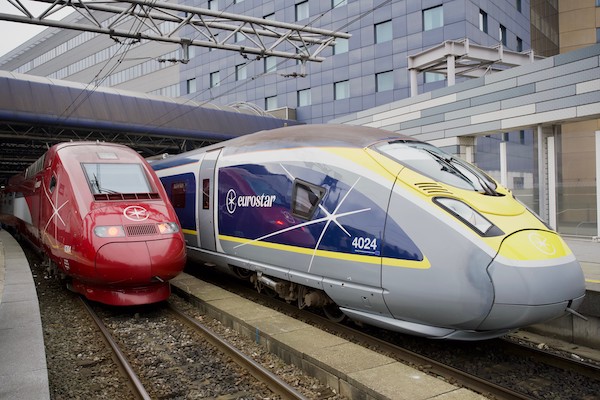The Advertising Standards Authority has once more reprimanded Eurostar for their £39 fare adverts. These promotional offers were deemed misleading due to their exaggerated availability claims, marking the second instance of such a ruling against the company.
Eurostar is under scrutiny for its promotional fares on routes to Brussels and Amsterdam. The ASA’s investigation revealed discrepancies in ticket availability and advertisement portrayal, necessitating a closer examination of Eurostar’s advertising policies.
Advertising Claims Under Scrutiny
Eurostar recently found itself under the lens of the Advertising Standards Authority (ASA) for the second time within the same year due to its £39 fare promotions. These adverts, particularly on social media platforms like Instagram and Facebook, were deemed misleading as they exaggerated the availability of these attractive fares. The ASA’s review highlighted that the adverts suggested a more substantial availability than what was genuinely offered by Eurostar, leading to a breach of advertising rules.
The contentious promotional fares were marketed for the London to Brussels and London to Amsterdam routes. However, it was found that only a meagre 4.2% and 1.6% of tickets to these destinations, respectively, were obtainable at the advertised price. This discrepancy between advertisement and actual availability spurred complaints and resulted in the ASA upholding these grievances. The ruling has prompted Eurostar to reassess how they communicate fare offers to the public.
Response to ASA Rulings
Eurostar, in response to the ASA’s findings, stated that the advertised fare availability was influenced by various factors like consumer demand and an algorithmic ticketing system. This system dynamically managed fares, leading to fluctuations difficult to capture comprehensively in their adverts.
Eurostar reiterated that their adverts accompanied terms and conditions specifying the travel dates, which were accessible one click away from the initial advertisement. Despite this, the ASA criticised the lack of prominent fare availability information, considering it material to consumer decision-making. Consequently, Eurostar acknowledged the need for improvement in their advertising practices to align better with the ASA’s standards.
Customer Trust and Transparency
The ASA stressed that consumers rely heavily on advertisements for making travel decisions, expecting a reasonable chance of obtaining tickets at promoted prices. Eurostar’s adverts, lacking in clarity and accuracy, inadvertently undermined public trust.
Addressing this, a Eurostar spokesperson emphasised their commitment to valuing customer feedback and adjusting their promotional strategies accordingly. They assured the public that steps were being taken to prevent future occurrences of similar issues and enhance transparency in their advertising campaigns.
The trust issue raised by this case underscores the importance of clear communication in consumer advertising, particularly in sectors as competitive as travel. Eurostar’s proactive approach in revisiting and revising their advertising protocols bears testament to their dedication to rectifying this trust deficit.
Analysis of Fare Availability
The data review by the ASA uncovered that Eurostar’s promotional advertisements were based on limited ticket availability. Their analysis showed that only a small fraction of the advertised £39 tickets were ever available, challenging the reliability of Eurostar’s advertised offerings.
Moreover, Eurostar’s claim of dynamic ticket injection to adjust availability based on demand was not backed by sufficient evidence. This lack of clear proof regarding the genuine extent of available discounted fares further compounded the ASA’s concerns. Consequently, the ruling illuminated the need for a more transparent fare availability disclosure in promotional content.
Eurostar’s Position on Advertisements
Eurostar argued that its advertising approach was standard in the industry, where terms and conditions are not overtly displayed within the advertisement but are accessible via a link. They maintained that this method aligns with general consumer expectations and industry practices.
The ASA, however, concluded that critical information should not be relegated to secondary pages. They insisted that significant details like fare availability periods should be directly visible to ensure fairness and clarity in consumer communication.
Implications for Future Campaigns
Looking forward, Eurostar is poised to overhaul its advertising methodologies. By incorporating the ASA’s feedback, Eurostar aims to enhance the clarity and accuracy of their promotional communications, thus restoring consumer faith.
The ASA’s repeated rulings signal an industry-wide call for honesty and transparency, serving as a reminder to all travel brands to uphold these principles in their marketing strategies. Adhering to these guidelines not only helps in avoiding regulatory repercussions but also strengthens consumer trust.
Regulatory Oversight and Industry Standards
The travel sector, heavily regulated to protect consumer interests, often comes under scrutiny for misleading practices. The ASA, in its capacity, ensures that all promotional material adheres to ethical standards, fostering a competitive yet fair marketplace.
This case accentuates the crucial role of regulatory bodies in safeguarding consumer rights and maintaining the integrity of advertisements. By enforcing strict advertising norms, the ASA helps cultivate a trustworthy environment for both consumers and advertisers alike.
Conclusion of Current Dispute
Eurostar has accepted the ASA’s decision and is willing to adapt its advertising practices to prevent misleading promotions in the future. This recognition of error and commitment to improvement is essential for restoring brand credibility.
The ASA’s decision highlights the importance of transparent communication in building consumer trust, an invaluable asset in the competitive travel market.
Eurostar’s repeated run-ins with the ASA underscore the importance of transparency in advertising. By adopting more honest promotional strategies, Eurostar aims to rebuild consumer trust and avoid future disputes.

